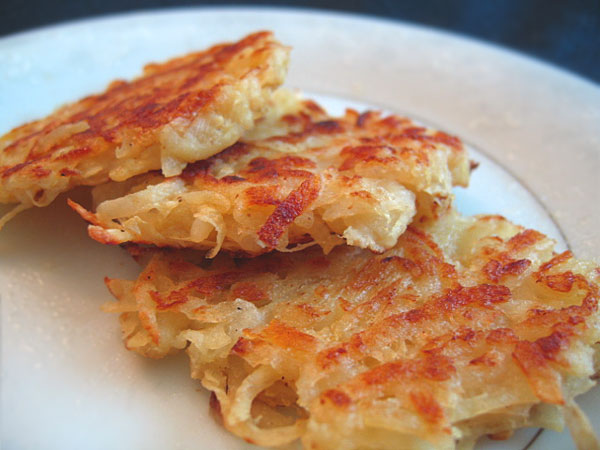Ah, the latke! It hits the Jewish palate with an unfettered, pleasurable mix of memory, satisfaction, and fried wonderful-ness. Of course, the use of oil reminds us of the Hanukkah miracle. But who can argue that this culinary treasure is an icon unto itself, a ritual that engages body and soul with Jewish history and peoplehood, pressing the savory, sweet, and holy buttons all at once.

Here’s a new twist on an old favorite, appropriate for Hanukkah and Thanksgiving: Spaghetti Squash Latkes!
- 1 average spaghetti squash
- 1 large egg, beaten
- 2 tablespoons all-purpose flour (use more if necessary for binding)
- 1/2 teaspoon salt
- Black pepper to taste
- 1/2 cup olive oil (you can also use coconut oil for crispier results)
- Optional toppings: Sour cream, apple sauce, salsa, Sriracha, etc.
- Cut squash in half, remove seeds, place on a baking tray, and bake at 350˚ for 30–45 minutes. Remove from oven and let cool for at least 10 minutes.
- Remove spaghetti-like squash strands with a fork. If necessary, cut strands on a cutting board to make them more manageable.
- Place squash strands in a bowl and mix with beaten egg, flour, salt and pepper.
- Heat oil in a nonstick pan. Drop squash mixture into 3-inch round patties. Fry until brown and crispy.
- Remove latkes from oil and place on a platter layered with paper towels to absorb extra oil. Serve hot! Savor the taste of Hanukkah, and remember the miracle. (Don’t forget to light the candles!)
בתיאבון! Beteiavon! Bon appétit!
~
Rabbi Seth Adelson